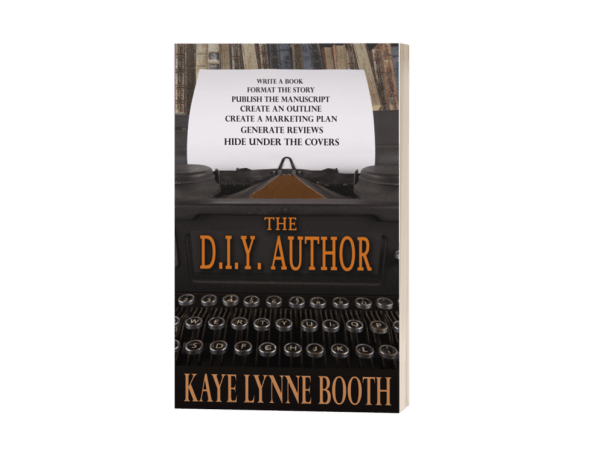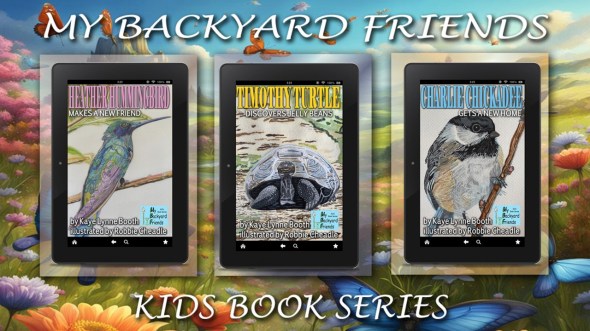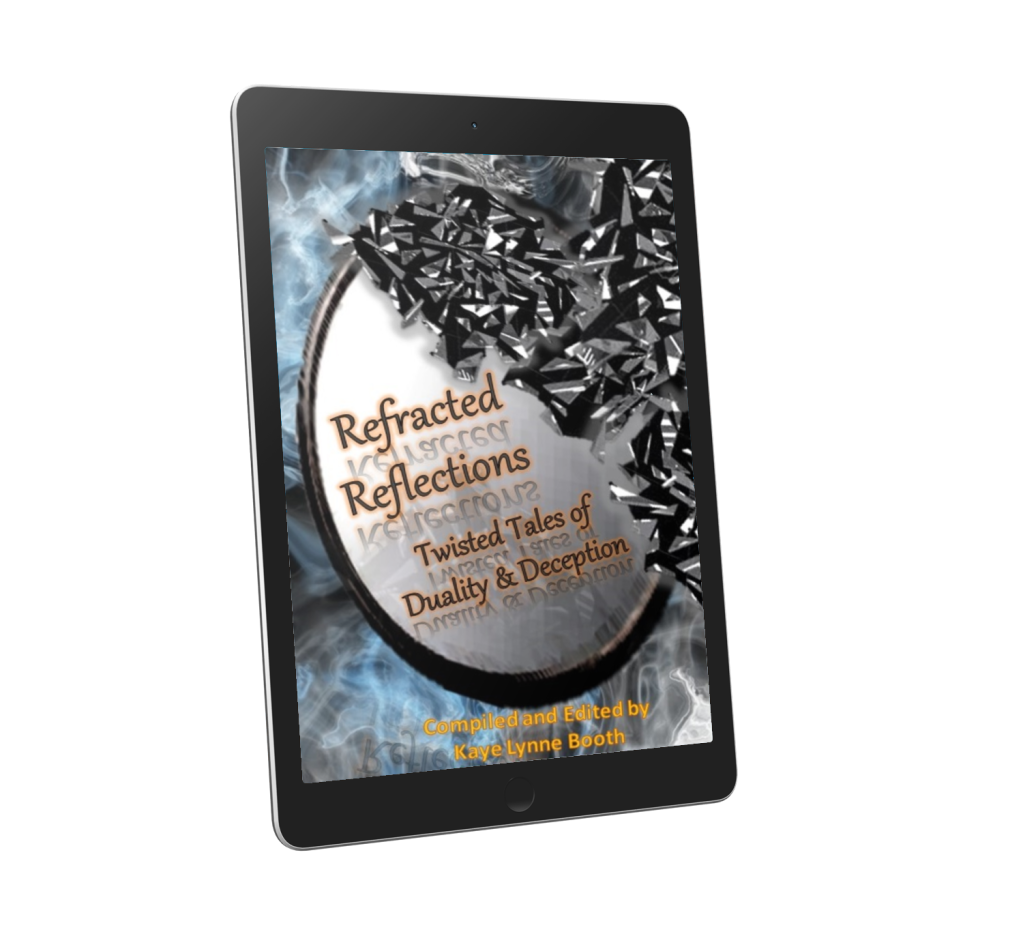Undawntech: Corporate Terms of Service and Theft of Intellectual Property
Posted: March 1, 2024 | Author: DL Mullan/Undawntech | Filed under: Technolgy, Undawntech | Tags: ai, news, Social media, technology, TOC, Undawntech, Writing to be Read | 2 Comments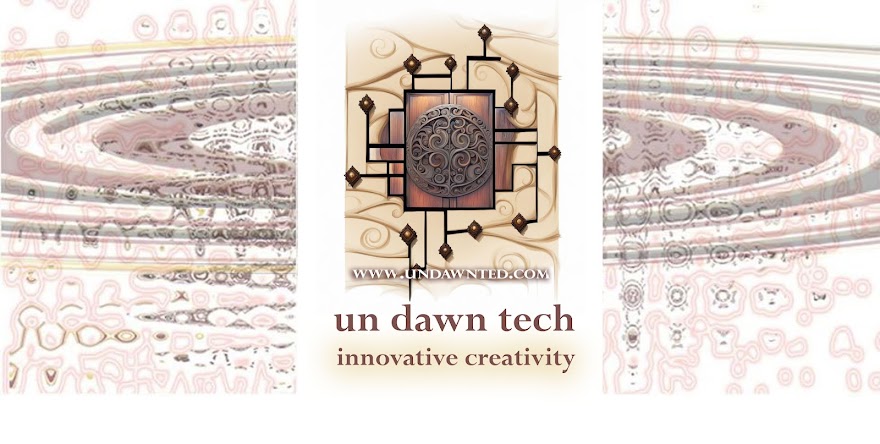
Have you ever read the Terms of Service (ToS) for your social media accounts, or even for your Internet Service Provider (ISP)? You may be surprised by what is written there. Corporations are interested in their financial and legal bottom lines, and not protecting any of your rights.
As creators of art, film, poetry, podcasts, and writing, how can we be certain that when we sign up for an account with an online application or platform our best interests are being served? First, we must read the laborious legalese contained in the Terms of Service. The document outlines what the corporation deems allowable under its rule. The dry text gives insight into how little corporations value their customers. You are little more than fodder to pump up their stock prices. Your concerns and rights have no value to the monopolies called corporations.
In the bygone years since Standard Oil and Ma Bell, lawmakers in the United States have stripped regulations that kept corporations from becoming tyrants in the rebel yell of libertarian idealism. Regulations to maintain a level economic playing field have been sliced and diced for the Free Trade and no regulation crowd (see speeches by President Javier Milei of Argentina or underdog political candidate, Vivek Ramaswamy about their views on deregulation). These concepts in action have left consumers vulnerable and small businesses tittering on an uneven scale against the mega-corporate, multinational giants who believe that corporate governance is mightier than any nation’s Constitution or law.
A recent ToS change has created a problem for copyright holders on the platform Spodify. A user posted this response:
“Get rid of the audiobook T.O.S. changes that apply to rightholders of the works.
Rescind changes to your Terms of Service as the relate to the rightholders of audiobooks, most notably the effective grant of a “non-exclusive, transferable, sublicensable, royalty-free, fully paid, irrevocable, worldwide license to reproduce, make available, perform and display, translate, modify, create derivative works “. Especially since it binds the rightful rightholders such that “Where applicable and to the extent permitted under applicable law, you also agree to waive, and not to enforce, any “moral rights” or equivalent rights, such as your right to object to derogatory treatment of such User Content. Nothing in these Terms prohibits any use of User Content by Spotify that may be taken without a license.”
This represents a clear attack on their lawful claim to their own intellectual property, and as such it is ridiculous and disgraceful that you would make such amendments to your Terms of Service.
Furthermore, it is cowardly to have done so quietly rather than with prominent preemptive announcement of such important changes.”
https://community.spotify.com/t5/Live-Ideas/Get-rid-of-the-audiobook-T-O-S-changes-that-apply-to/idi-p/5888834
What do you think? Should creators leave this platform? If you would like to keep your copyright intact, then the answer is a resounding: YES.
The problem is, that most users ignore a corporation’s Terms of Service. From either apathy or inability, corporations have seized power by user indifference to their legal rights. This has allowed corporations to use their users, instead of users using these platforms. The “good faith” clause no longer applies.
To see just how users disregard the Terms of Service document, a study was performed with a fake social media site called NameDrop. What the researchers discovered dismayed them. Here is what happened:
“Unbeknownst to the students, the terms of service contained two questionable clauses. The first said NameDrop may be required to share your data with the government, including the National Security Agency(NSA).
That clause is concerning when you really think about it, but it’s close enough to what you’d see in a real ToS. Twitter’s terms, for example, says “we also reserve the right to access, read, preserve, and disclose any information as we reasonably believe is necessary to (i) satisfy any applicable law, regulation, legal process or governmental request.
NameDrop’s second crazy clause should’ve stopped most users in their tracks—or at least clued them in that the service wasn’t real. The second clause said all users agree to give their “first-born child” to NameDrop. If the user didn’t have children yet, their first baby would still have to go to NameDrop until 2050.”
https://www.pcworld.com/article/415643/goodbye-firstborn-children-this-study-shows-how-wordy-terms-of-service-hurt-users.html
What the researchers found was that 74 percent of those who signed up for NameDrop did not read the policy. Less than two minutes were spent reading the TOS, while the full document took about 30 minutes. If the customers had read the legal document, then they would have seen that the social media site was fake.
And kept the rights to their firstborn child, anywho…
Most people who do read the ToS take less than one minute to do so, but if they did take that fifteen to thirty minutes of their time to safeguard their rights and privacy, probably would not sign up for such an account.
When something is free, YOU are the commodity that is being used to make someone wealthy at the expense of you, your rights, your privacy, and your mental health.
Expert reveals the ‘slot machine’ tricks Facebook uses to keep people addicted
https://sports.yahoo.com/news/expert-reveals-slot-machine-tricks-facebook-uses-keep-people-addicted-090211355.html
Social Media Use and Its Connection to Mental Health: A Systematic Review
https://www.ncbi.nlm.nih.gov/pmc/articles/PMC7364393/
As a creator, how do you intend to maintain your personal and legal sovereignty in the face of corporate governance? Is it time to push lawmakers in the direction of protecting our copyright against corporate power grabs?
Perhaps, creators should read the ToS for accounts on sites they use, outline the legal issues, and then demand a change to the laws for these platforms. Before we run to our local Congressional office, perhaps a walk down memory lane on how we got here will give us context to the situation:
47 U.S. Code § 230 – Protection for private blocking and screening of offensive material
https://www.law.cornell.edu/uscode/text/47/230
Americans Finally Have Access to American Propaganda
https://www.theatlantic.com/politics/archive/2013/07/americans-finally-have-access-american-propaganda/313305/
The Smith-Mundt Moderization Act of 2012
Universal Declaration of Human Rights
Article 29, Section 3:These rights and freedoms may in no case be exercised contrary to the purposes and principles of the United Nations.
https://www.un.org/en/about-us/universal-declaration-of-human-rights
If more people read the Terms of Service to our treaties, regulatory laws, and online accounts, then more people would understand what seems like a platform problem is really a ubiquitous issue of eroding rights, privacy, and property on an international scale rather than an endemic one.
_____

DL Mullan holds a Master of Arts in Teaching and Learning with Technology.
Her lecture, Spacescapes: Where Photography Ends; Imagination Begins,
debuted at the Phoenix Astronomy Society, which then led to her Sally
Ride Festival lecture invitations. Her presentation, Bridging the Gap
between Technology and Women, won her accolades at a community
college’s Student Success Conference. She has been a panelist at
speculative fiction, science fiction, and other regional conventions.
Her digital exhibition pieces have won awards at convention art shows,
as well as garnered her Second Premium at the Arizona State Fair.
Currently, Ms. Mullan’s artistic renditions are seen on book covers,
blog sites, video presentations, and various merchandise. As an
independent publisher, she uses her technical background to innovate
the creative arts.
As a writer, DL Mullan loves to stretch her imagination and the
elasticity of genres. She writes complex multi-genre stories in
digestible and entertaining forms, be it poetry, short fiction, or
novels. Her science, history, mythology, and paranormal research
backgrounds are woven into her writings, especially in Undawnted’s
Legacy Universe. Ms. Mullan’s creative endeavors are available in
digital and print collections, from academia to commercial
anthologies. She is also an award-winning poet.
Be sure to subscribe to her newsletters and follow her on social
media. For further information, visit her at www.undawnted.com and
www.undawntech.top.
Writing for a YA Audience: Say Cheese
Posted: January 16, 2019 | Author: jordanelizabethbooks | Filed under: Books, marketing, Promotion, Writing, Writing for a YA Audience, Writing Tips, Young Adult | Tags: book marketing, Book Promotion, Instagram, Jordan Elizabeth, Social media, Social Media Marketing, Social Media Promotion, Writing for a YA Audience, Young Adult Fiction | 1 Comment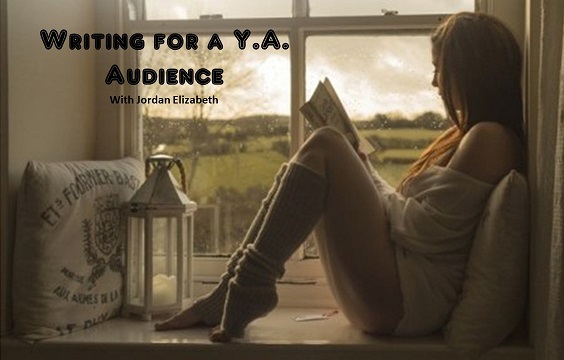
“Go on Instagram,” said my publisher. “That’s where the teens are. Post pictures of your books. They’ll eat it up.”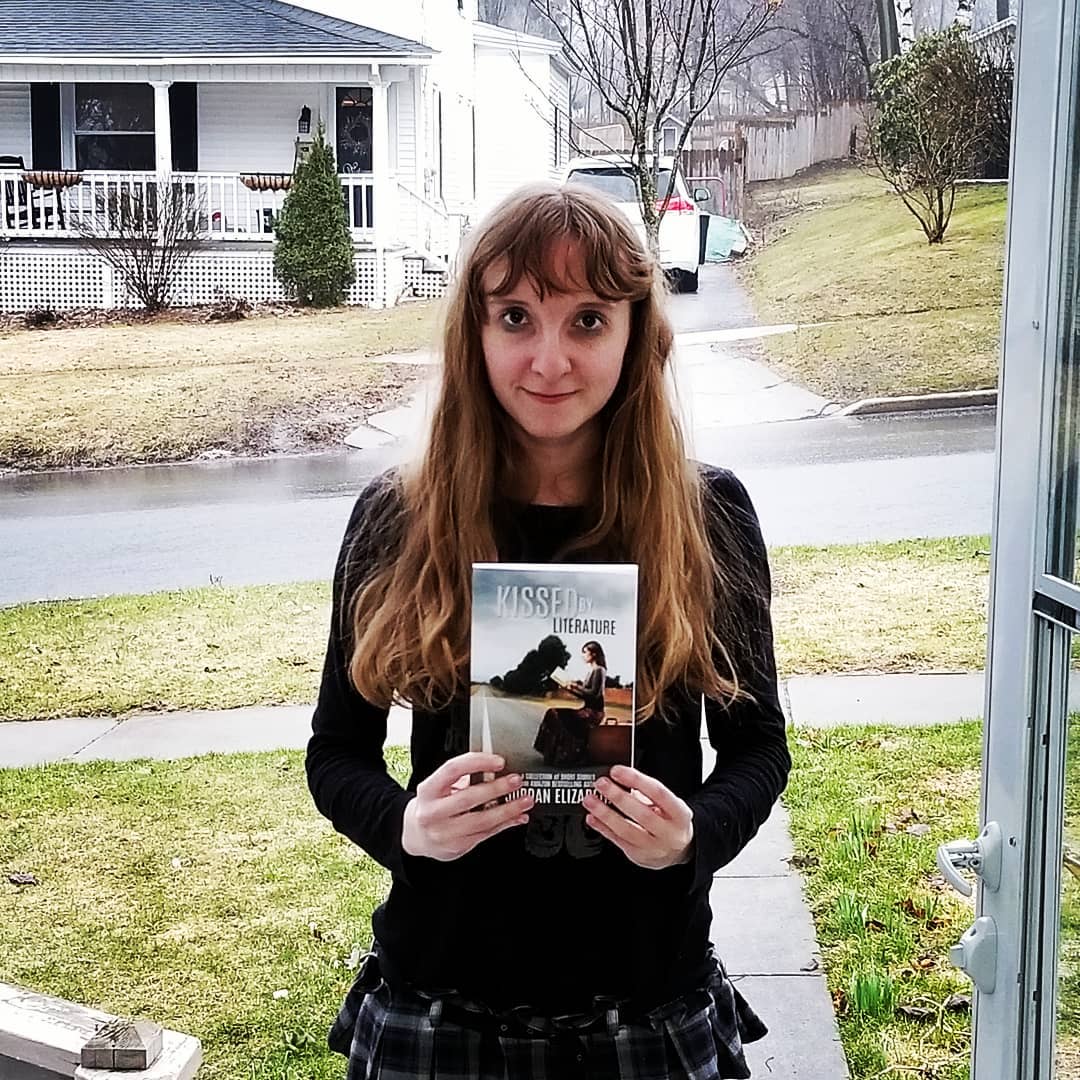
I was new to Instagram, but I called up the website on my computer and attempted to join, only to find out you have to post using the app on your cell phone. That put a damper on things – I don’t have a smart phone. My phone flips up, costs $100 a year, and it does everything I need it to (as in, it sometimes sends texts and usually makes a phone call). My husband has a smart phone, so I download the app onto his device, put on a smile, and snapped a picture holding my book. I didn’t look all that great. I snapped a few more, and ended up just taking a picture of the book cover. It got a few likes. They were from people who already knew me on Facebook.
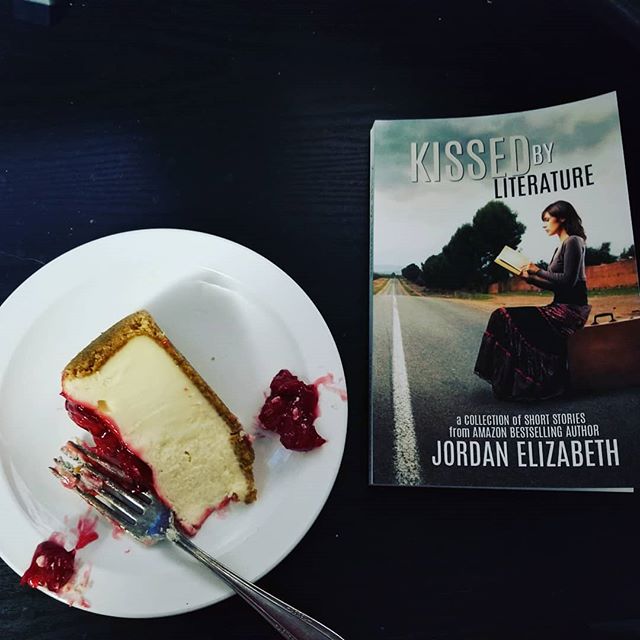
I posted a few more covers and the likes trickled in, still from people who were already my friend. It seemed I needed a new strategy. I needed to attract people who didn’t already know me. I took some pictures of just me doing cute poses or wearing cute outfits. The same thing happened – the same people “liked” my pictures. Next, I tried posting pictures of my cat. That earned me more likes, and a couple new people. While she is adorable, my goal for Instagram was to get my book out there.
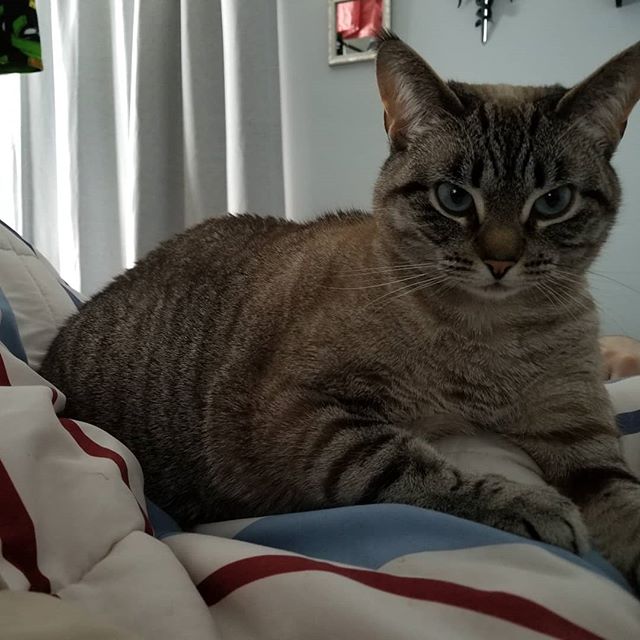
I reached out to author friends for advice. Based on their feedback, I started posting inspirational quotes and setting up my books in gorgeous spots. I propped my book up on the porch. I set the book in a bed of flowers. I put the book on my actual bed.
I like to think I’ve gotten better at posing my book in different way. The books are models and I’m their photographer. A very poor photographer. Likes and hearts trickle in, and now they’re coming from people I don’t know. I’m getting there!
Jordan Elizabeth is a young adult fantasy author. If you would like to follow her on Instagram, she goes by JayliaDarkness. The username is a shout-out to the YA fantasy series she’s currently writing.
You can connect with Jordan via her website, JordanElizabethBooks.com.
Want to be sure not to miss any of Jordan’s Writing for a YA Audience segments? Subscribe to Writing to be Read for e-mail notifications whenever new content is posted or follow WtbR on WordPress.
Social Media is for Making Connections
Posted: December 17, 2018 | Author: kayelynnebooth | Filed under: Advertising, Copywriting, marketing, Promotion, Western | Tags: book marketing, Book Promotion, Social media, Social Media Events, Social Media Marketing, Social Media Promotion | 4 Comments
My husband always accused me of spending too much time ‘playing’ on Facebook, and although I do spend a lot of time on social media, what I’m really doing is promoting my writing and interacting with other authors and potential readers. The truth is, social media can be a valuable tool for authors, if they go about it with the right expectations.
Although I hear paid Facebook ads can drum up a few sales, but if we don’t want to spend a lot of money, we shouldn’t expect to sell a lot of books through social media. I know it doesn’t sound like it’s really very beneficial when you look at it from a sales perspective. But social media can be benificial if we use it to connect. Social media connects me with other authors and potential readers via several channels.

On Halloween, I co-hosted the Dead Man’s Party event, together with DL Mullen of Sonoran Dawn Studios. Though I had participated in several such events, this was my first experience with the organization of one. It was also the first audio event I had ever heard of. We mixed things up a bit by having the participating authors provided readings of their works of paranormal and horror, intermixed with the regular promotional posts, silly party games and giveaways. I had recently reviewed Dark Visions, a horror anthology compiled and edited by Dan Alatorre, which had just been released, and with his help, I was able to recruit many of the authors of the stories from the anthology. It was a learning experience, as many of these authors had never published anything before, or done an event such as this. I did many of the recordings and put together one video reading, as well as creating promotional posts for many of them. The whole thing was a lot of fun, drawing in over 1000 visitors I’m told. Overall, it was a success and a lot of fun, and I made many new friends and followers.
But, it was also a lot of work. The recordings took a lot of time to get them right, their were a few audio problems with the video presentation, and I made their promos like I do for my own work, with loving care. However, it was worth it all to get the experience and improve on my promotional skills, as well as in watching my number of followers grow. And one of my new author friends from the event will be joining the WtbR team as a contributing blogger to start the new year. The work I did also gave me some much needed samples of my promotional work, which I used to start my new Copywriting and PA Services page.
So you can see how this event benefited me greatly. Although I didn’t sell a single book, (the ones I gave away don’t count here), I did prosper from the event in many other ways. The message here is to social media to your advantage, but use it in the right ways and for the right reasons in order to avoid having your expectations left unfulfilled. But that’s how you have to approach social media promotion. The first word in social media is ‘social’. It’s there to make connections. That’s what we can expect to get from promotions on social media platforms. Promotion on social media can bring you authors to network with, or readers to build your platform. Any real book sales that you do get are just a nice bonus, but they cannot be expected.
I also gain followers through my Facebook pages. I currently have four pages. The primary page is my Kaye Lynne Booth – Author and Screenwriter page. I also have a page for Delilah – Kaye Lynne Booth, for news concerning both my published western and for book 2, Delilah the Homecoming which is still in the draft stages, as well as pages for two WIPs: my scince fantasy series, Playground for the Gods – Kaye Lynne Booth, and my memoir, His Name Was Michael – Kaye Lynne Booth. Through these pages I hope to gain followers who are interested in my writings. By building my platform, I hopefully gain readers who will buy my book.
I’m a member of a large number of author and book groups that allow promotional posts, as well as discussions. We should realize that most of the participants in these events like the one I spoke about above are other authors and the ‘book sales’ you get will be from giveaways. I use this to my advantage by making these connections my goal, instead of going about it with expectations of increased book sales. I spend my time on social media sharing promotions for my blog posts, responding to comments on my posts, sending out friend requests, and interacting. Through the new author friends that I make at these events, I’m able to find authors in need of interviews or book reviews for Writing to be Read, and my followers are growing through my efforts, as well.
So, I say that social media can be a useful tool if we set the right expectations and use social media the way it is meant to be used. Connections can be valuable to an author, especially a new author. We just have to see it’s value and find ways to use it to our benefit.
Like this post? Subscribe to Writing to be Read for e-mail notifications whenever new content is posted or follow WtbR on WordPress.
Social Media: What’s it good for?
Posted: September 3, 2018 | Author: kayelynnebooth | Filed under: Books, marketing, Promotion | Tags: author platform, book marketing, Book Promotion, promotion, Reader Platform, Social media | Leave a comment
I posted a link in my Writing to be Read Facebook group a couple of weeks ago. The article discussed the new changes made by Facebook which do not allow us to post promotional materials on personal Timelines. Under the new guidelines promotional posts are only allowed to be made on our Facebook Pages, which are designed to be set up for businesses. If you break the rules and make promotional posts on your Timeline, Facebook can ban you. This information caused quite a stir in my group, and I admit it caused me quite a bit of concern, as well. I came to the conclusion that, as with everything in life, we must learn to be flexible and accoodate change. I changed the title of my Kaye Lynne Booth Screenwriter page to Kaye Lynne Booth Author and Screenwriter and set my automatic posts from WordPress to post there instead of on my Timeline and hoped for the best.
One of the comments I received was a question toward one of the group members who was upset, viewing this as a ploy to force us to purchase paid advertising. The second member asked how using Facebook’s free advertising was going and asked if she had sold many books from it. While I don’t think this change prohibits making promotional posts as long as you make them through allowable channels, the conversation made me stop and think about what we authors are expecting to achieve through such posts.
Free promotion through social media is great. It offers us, as authors, an avenue to get the word out about our writing, without putting a dent on our wallets. For aspiring authors, who haven’t made it to fame and fortune yet, like myself, that’s great. But what results are we expecting?
If you’re thinking your book will rise to the top of the best seller lists, you’re dreaming. That’s not the way it works. The best seller lists, at least those on Amazon, work on algorithms, and if you’re only one of a smattering of books in a category, it may not take many book sales to place your book at the top of the list. Authors who write romance have it a lot tougher, because there are a whole slew of romances out there, a lot of competition, so even if your book is making sales, it may not be enough to launch you to the top because it’s based on the books which sell the most in that particular category.
Likewise, most of the folks who those promotional posts reach are other authors, not the people in your target audience. Authors may buy books, but basically they want the the same thing you do. They are out there to promote their own work. Social media isn’t designed to sell books, although their paid promotions may be quite effective, and anyone who is using free promotions to try and sell books, or anything else, may be sorely disappointed. Social media, my friends, is designed to promote connections, some of which may be quite valuable, but it’s not designed to sell merchandise, hence the word ‘social’. And that is what I get from my promotional efforts on Facebook and any other social media site I use. I grow my blog following and my email list. I find a few people who are willing to review my book. I meet people who can include me in their author services as an editor. I connect with artists who can create the book covers I need. While many are fellow authors, I tap into that as well, offering them interviews or reviews here on Writing to be Read. They get some free exposure and I great content for my blog. It works out great.
That being said, I’ve come to the sobering realization that nothing is free, and I’m going to have to invest some of my hard earned money if I want to boost my book sales. While I can’t afford paid promotion on Facebook or Amazon right now, there are affordable promotions out there.
- There are some affordable avenues of promotion out there. Most recently, I found a promotional site called I Like E Books, which has promotional packeages which range from free up to twenty dollars, which seems promising. They provide promotion on social media channels and other cool stuff, depending on which level od promotion you pay for.
- Although not a promotional site, per se, Book Bub is great for featuring your books under your favorites, so folks can see that they are available. You can follow your favorite authors and hopefully gain some followers of your own. It doesn’t cost anything to join.
- On All Author, you can have your book featured on their site for six months, with twitter promos, weekly mock-up banners, and review posting for a flat fee of $24.
- It’s also free to sign up for PromoCave, which is a site for ongoing promotion via social media sites. It helps on this site to post content fairly regularly, since it will bring readers to your profile.
- BMI Books is a global book marketing site where you can place and manage a book ad for free, although I’m unsure how this one works as yet.
- You may also sign up for free on Write Globe, which has a nice book promotion platform as well as supporting other types of creativity. This site was listed as number one in a list of “Top 7 Websites for Book and Author Promotion” by Alwin Gnanaraj on LinkedIn.
- Creative Designers & Writers is a free international classified site, where you can create and post an ad. It is supportive of other creatives as well and can serve as a platform for collaborative works with graphic designers and artists.
- Books Online Best also allows you to post a free ad in addition to other author services, such as book trailers and author interviews. You can also create a freelance site here.
One day, I’ll be able to afford to play with the big boys. For now, I will be grateful for the benefits I can get from social media, but I will approach it with reasonable expectations, being grateful for every follower I gain and counting any book sales that comes from it as an extra added bonus.
Like this post? Subscribe to Writing to be Read for e-mail notifications whenever new content is posted or follow WtbR on WordPress.













